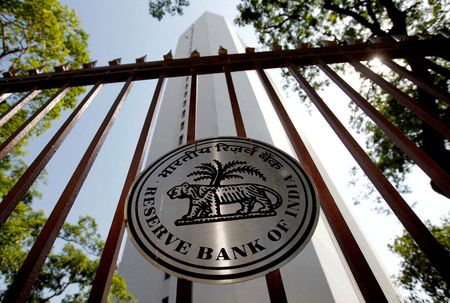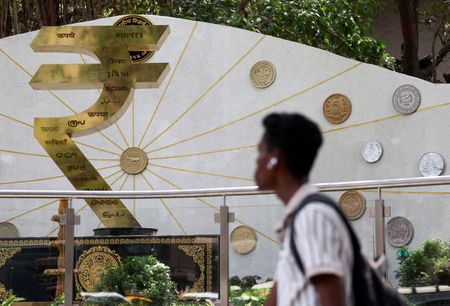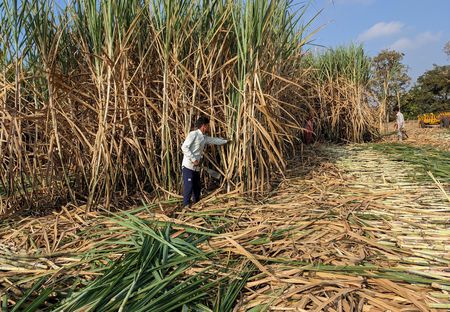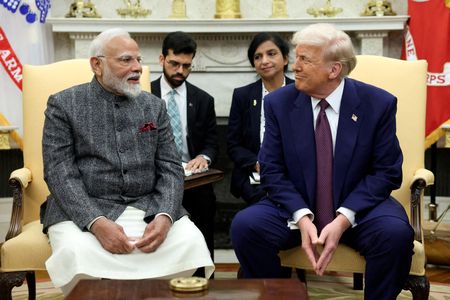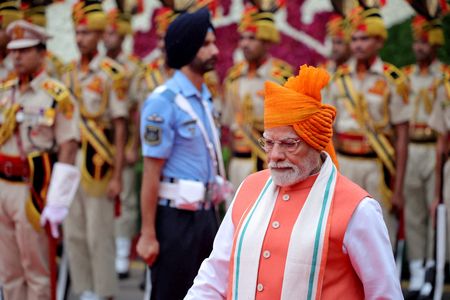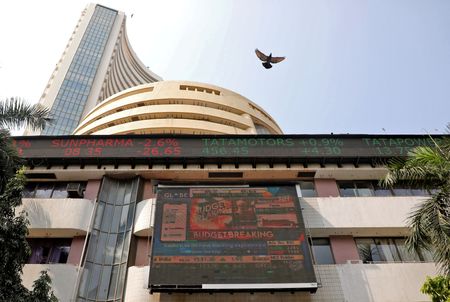By Swati Bhat
MUMBAI (Reuters) -India’s current account logged a deficit in the April-June quarter on the back of a higher merchandise trade shortfall, the Reserve Bank of India said on Monday.
The current account deficit stood at $2.4 billion, or 0.2% of GDP, in the first quarter of the fiscal year 2025-26, compared with a deficit of $8.6 billion, or 0.9% of GDP, in the same quarter a year ago.
In the preceding quarter, the current account had recorded a surplus of $13.5 billion, or 1.3% of GDP.
The merchandise trade deficit widened to $68.5 billion from $63.8 billion a year earlier, the RBI said.
“Front-loaded exports to the U.S. and continuously healthy services exports helped 1Q CAD (current account deficit),” said Madhavi Arora, lead economist at Emkay Global.
“However, the payback from the last quarter and tariff-led hit to labour-intensive sectors could imply FY26E CAD/GDP crosses 1.2%, with further upside risks,” she added.
India’s net services receipts rose to $47.9 billion in the fiscal first quarter from $39.7 billion a year earlier, the RBI said. “Services exports have risen on a y-o-y basis in major categories such as business services and computer services.”
Personal transfer receipts, which are mainly remittances by Indians employed overseas, increased to $33.2 billion from $28.6 billion a year ago.
India’s balance of payments recorded a surplus of $4.5 billion in the June quarter, compared with a surplus of $5.2 billion a year earlier.
“If the 50% (U.S.) tariff persists till March 2026, then CAD could rise to 1.3% of GDP,” said Gaura Sen Gupta, chief economist at IDFC First Bank.
“The balance of payments has likely turned negative in Q2 FY26 with slowdown in FPI (foreign portfolio investor) flows and further widening in the trade deficit,” she said.
The RBI’s decision to reduce its forward book by allowing near-term buy-sell swaps to mature will pose a further drag on the capital account and keep depreciation pressure on the rupee, with a near-term range now likely to be 87.50-89 against the dollar, Sen Gupta added.
(Reporting by Swati Bhat; editing by Harikrishnan Nair and Mark Heinrich)

